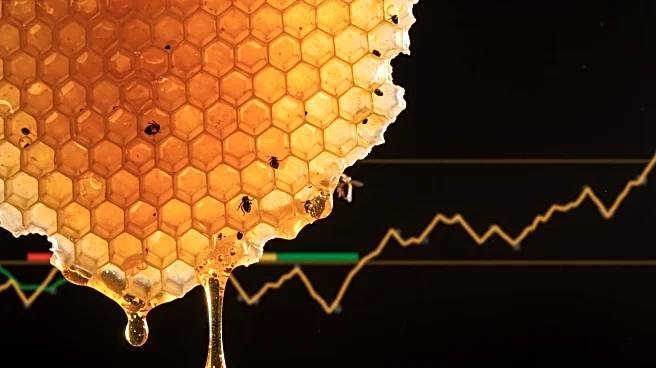What's Happening?
Honeybees are experiencing significant stress due to rising global temperatures, which is affecting their ability to pollinate effectively. As temperatures increase, honeybees must expend more energy to cool themselves, which reduces their time and energy for pollination and mating. This situation is exacerbated by other environmental stressors such as pesticides, diseases, and habitat loss. According to Margarita López-Uribe, a pollinator health expert at Pennsylvania State University, these factors collectively reduce the bees' heat tolerance. Beekeepers have reported losing up to a third of their colonies, which is a significant concern for farmers who depend on these pollinators for crop production.
Why It's Important?
Honeybees are crucial for the pollination of many crops, contributing to 35% of global crop production. In the United States, they are essential for the cultivation of crops like almonds, apples, cherries, and blueberries. The decline in honeybee populations poses a risk to food security, potentially leading to lower crop yields, shortages, and increased prices for consumers. The situation highlights the fragility of the agricultural system, which relies heavily on these pollinators. The loss of honeybees could have significant economic impacts on the agricultural sector and food supply chain.
What's Next?
Scientists are continuing to study honeybee populations to better understand the causes of their decline and to develop strategies to mitigate these effects. Efforts are being made to make crops more attractive to pollinators and to create more hospitable environments for bees in gardens and farms. These initiatives aim to support both the pollinators and the agricultural industry. Ongoing research and conservation efforts are critical to ensuring the survival of honeybee populations and the stability of the food supply.










